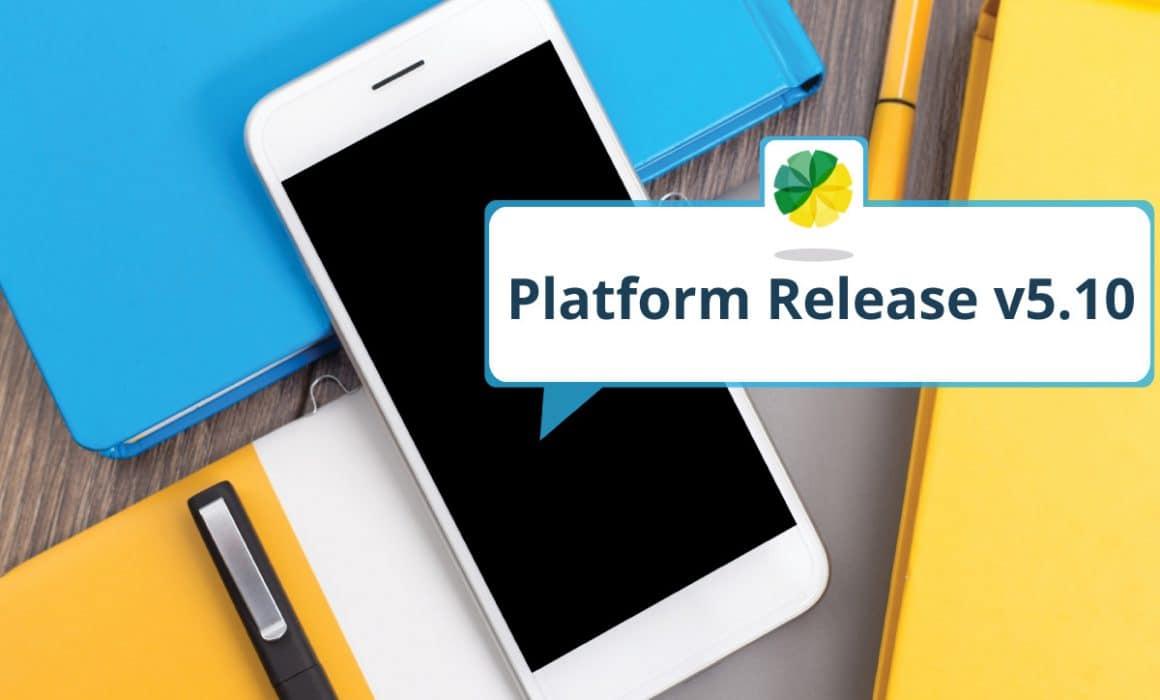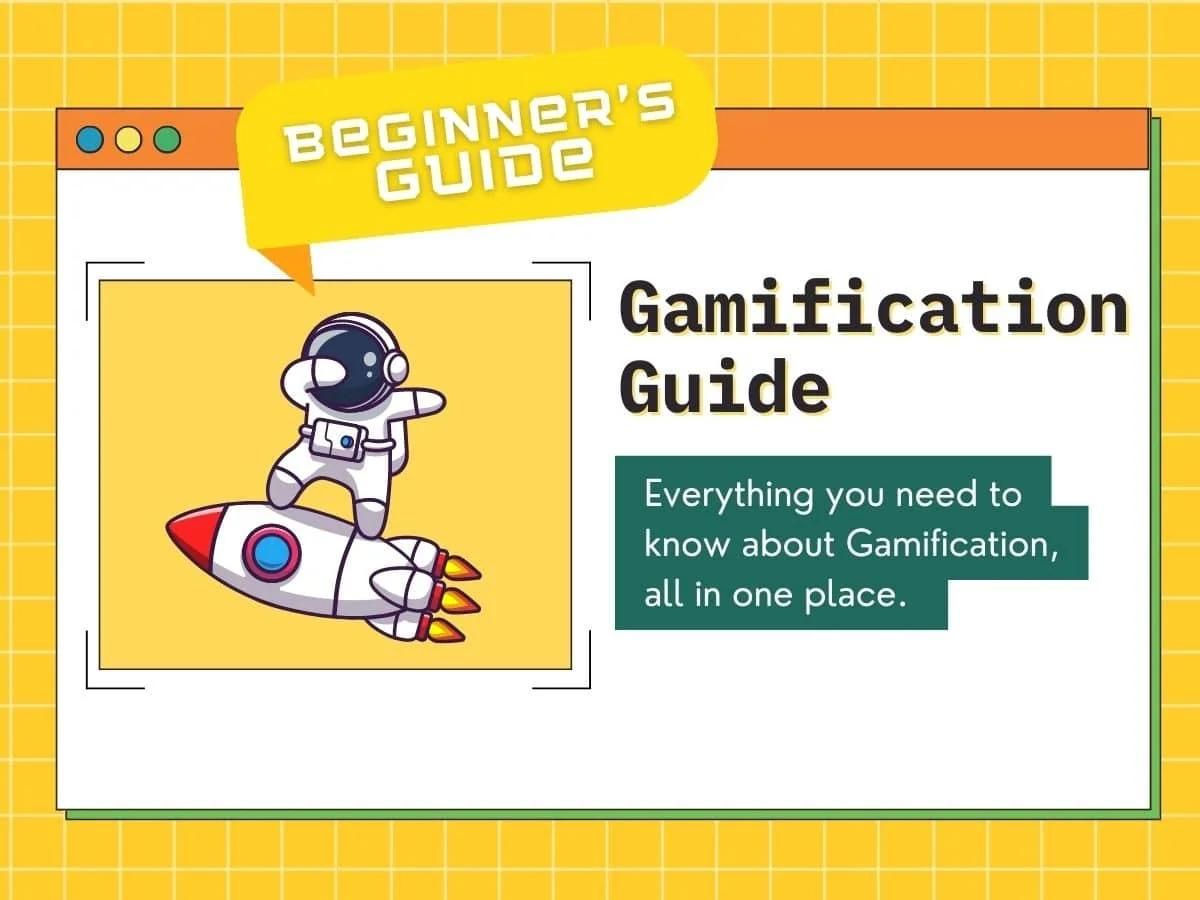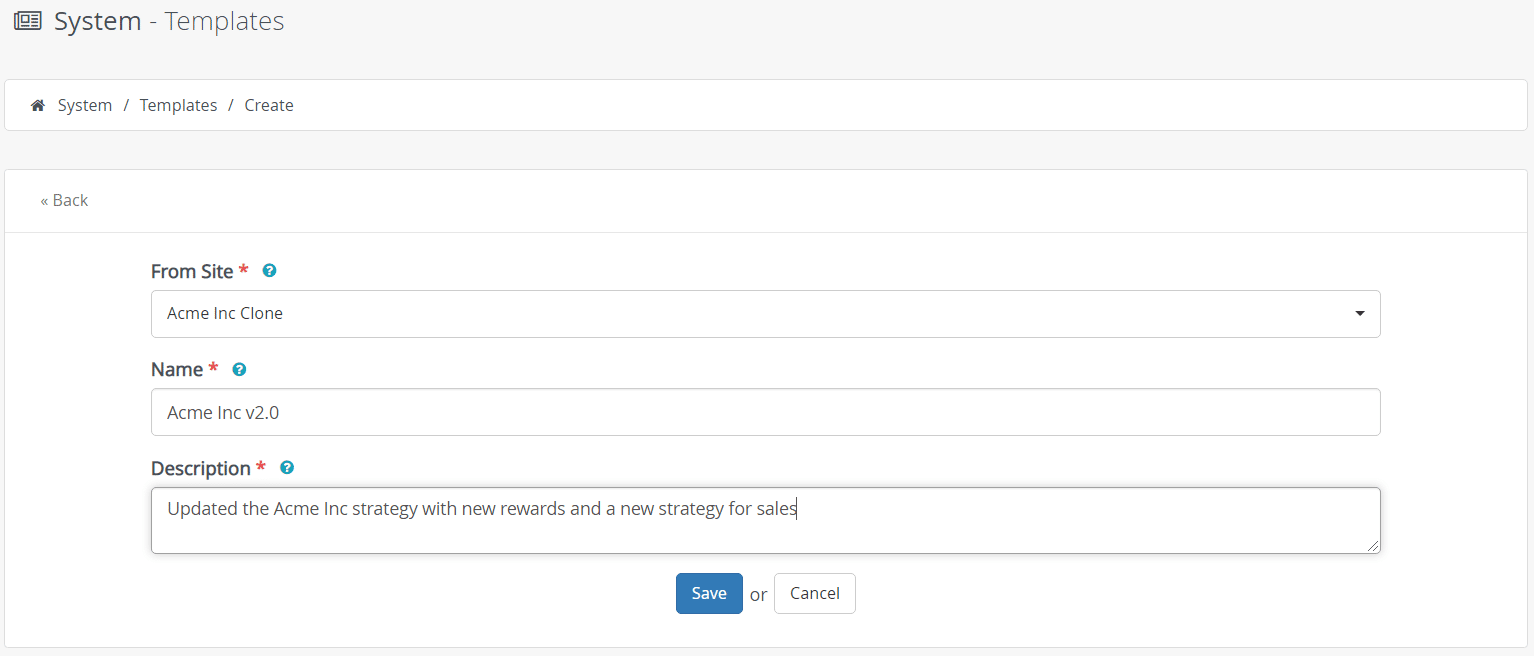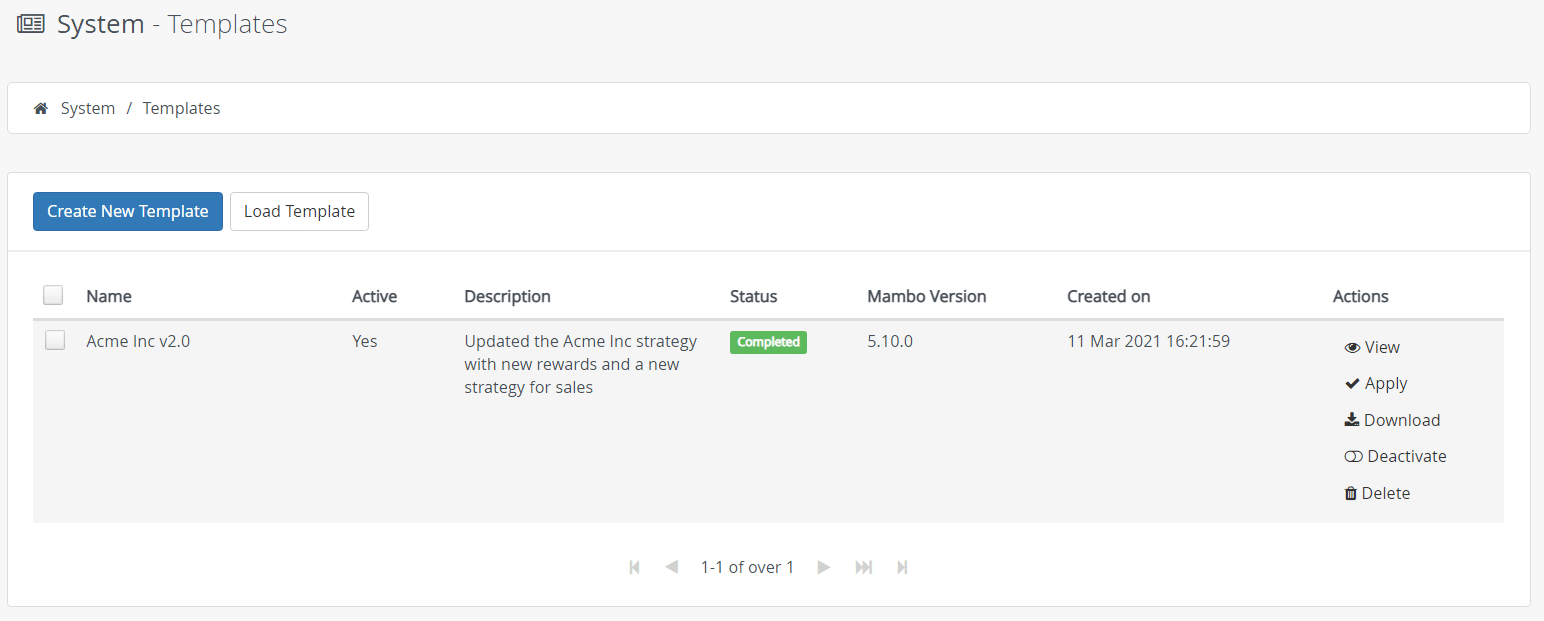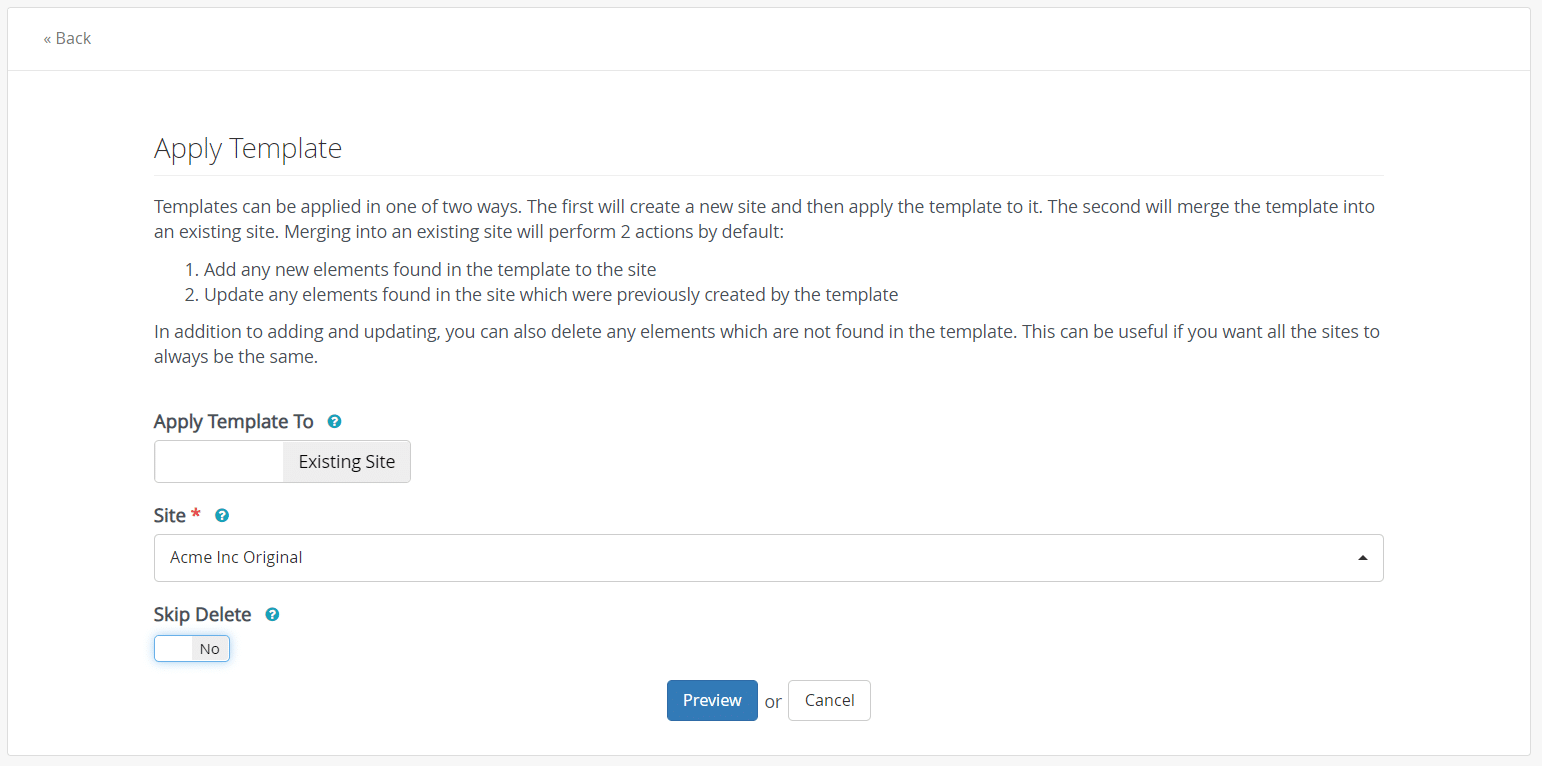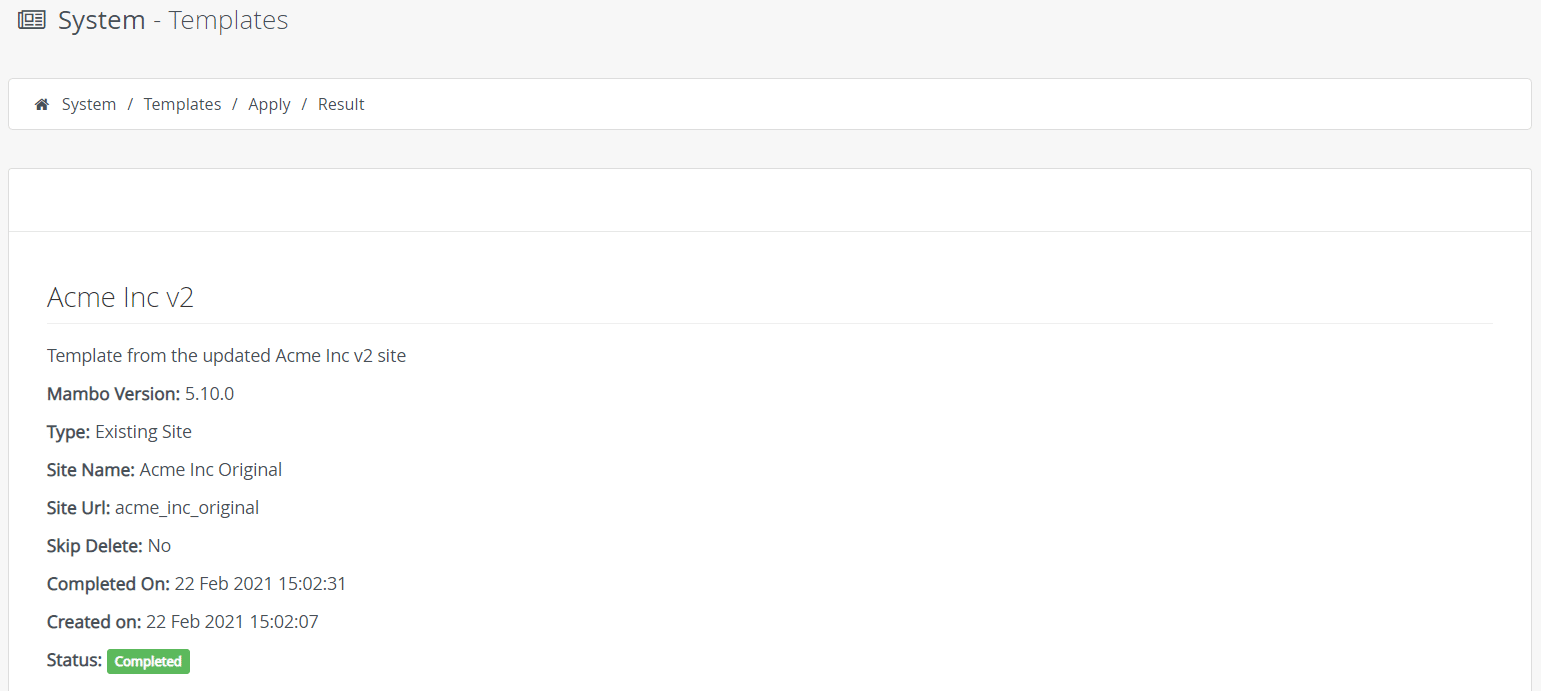Mambo Gamification Platform v5.10 – Release Notes
Mambo Release v5.10 :
Site Templates and Portability
It’s finally here with us! The ability to create and manage templates based on your sites.
This powerful feature allows you to create a copy of your site’s configuration as a template. The template can then be used to create new sites, or to merge into existing ones.
Here are a few examples of how templates can be used:
- Updating a site’s configuration without manual intervention
- Portability of a site’s configuration between environments
- Creating re-usable strategies or components of a strategy
Updating a site’s configuration without manual intervention
We’ve made the process of maintaining and updating your site configuration smoother.
You can now create a copy of an existing site, change it and then re-apply these changes to the original site.
This completely removes the need to manually copy configuration between sites, replacing it with the following easy steps:
- Clone your existing site
- Make your changes in the clone
- Create a template from the clone site
- Apply the clone template to the existing site
Portability of a site’s configuration between environments
The same concept explained above can be used to export and import site configuration between separate on-premise environments.
Effectivetly acting as a transport system for the configuration.


Creating re-usable strategies or components of a strategy
Break down your strategies into smaller components that can be re-used across sites and that can be maintained independently.
For example, break down your sales strategy based on an over arching set of goals and objectives, and then create separate components for Sales Development Reps and Account Executives.
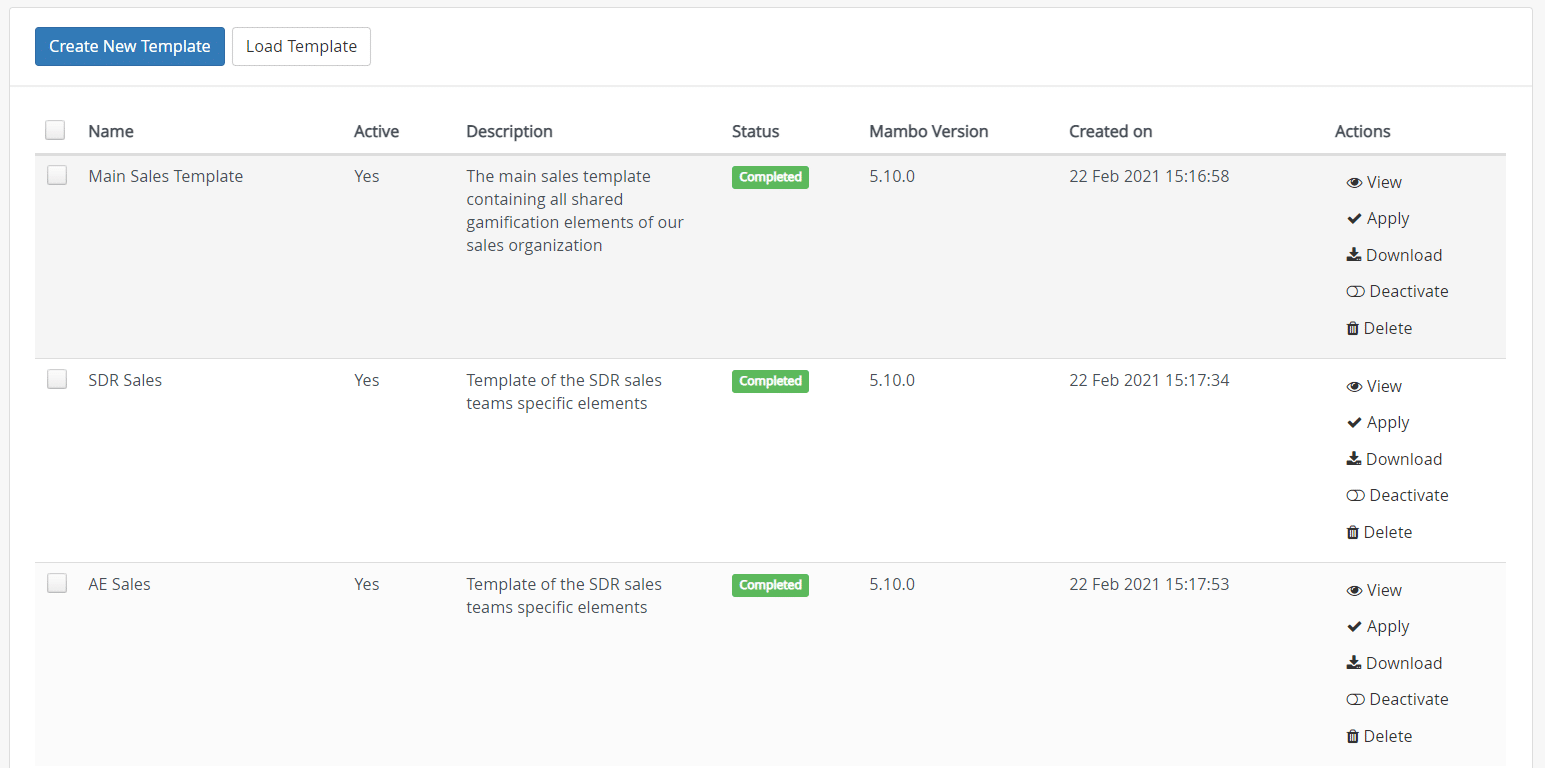
Mambo Release v5.10: Powerful Data Stores
We’ve finally brought the Data Store into the spotlight, giving them a host of new features and their very own UI.
We’ve added new fields so that data stores can be linked to users, groups of users and be timestamped. All of the new fields are searchable making it easier than ever to find your data stores.
The UI also helps you get an idea of your data stores visually, making on-going maintenance and troubleshooting much simpler.
Data stores can be used as a way of creating friend lists, building multi-user challenges, storing quizzes and surveys, or for any other engagement data needs you may have.
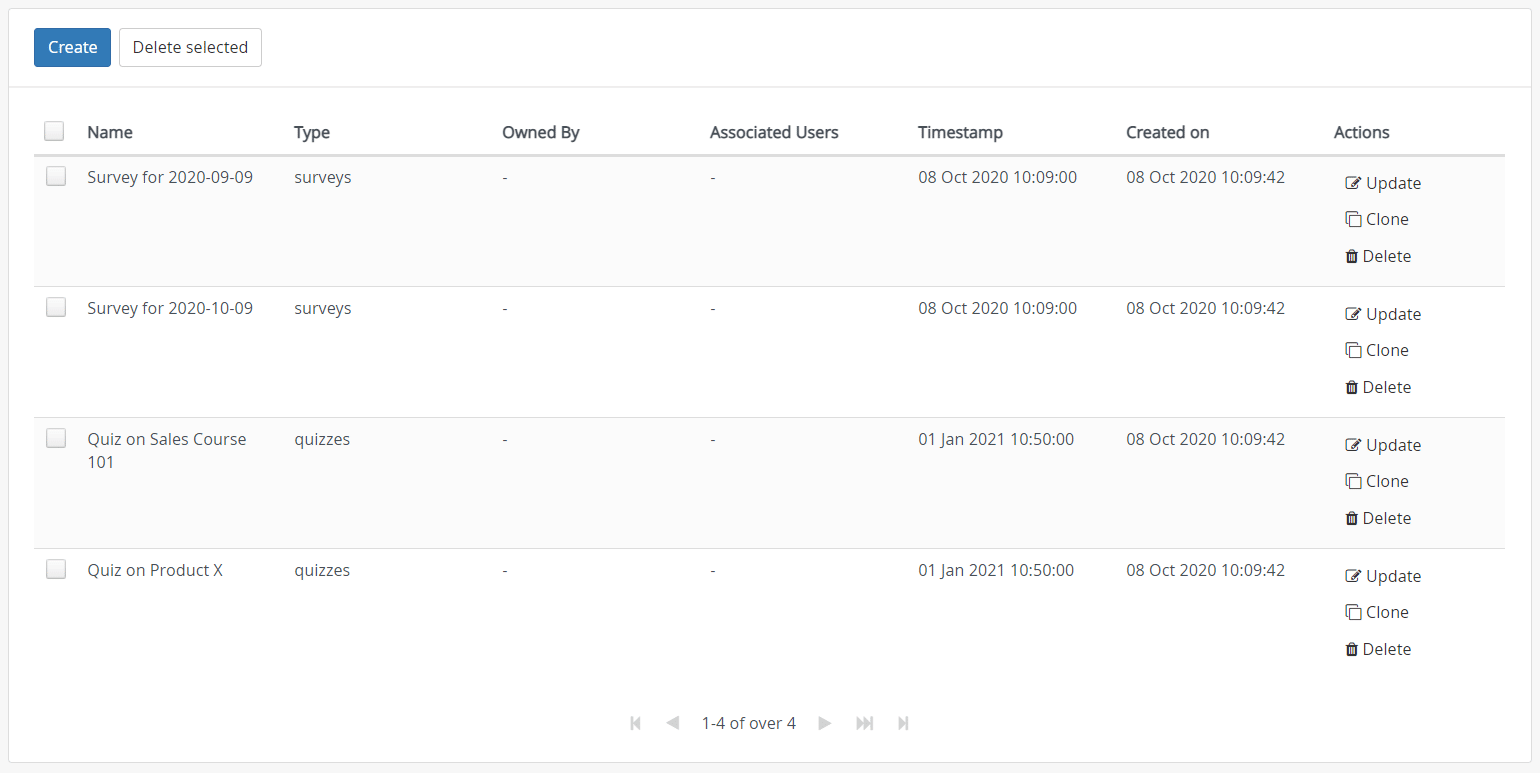
Easier Administration
We’ve taken your feedback onboard and made the administration panel more intuitive and easier to navigate.
We’ve completed rebuilt our data tables. New columns have been added to expose more information. We’ve added a columns manager which will remember your settings between visits. Any mechanic shown in the data tables is now linked to facilitate navigation.

We’ve also added non-scrolling table headers making it much easier to scroll through long lists of data.

We also decided it was time to change our login page and make it interesting. You’ll now be greeted with a variety of backgrounds and a bit of colour!
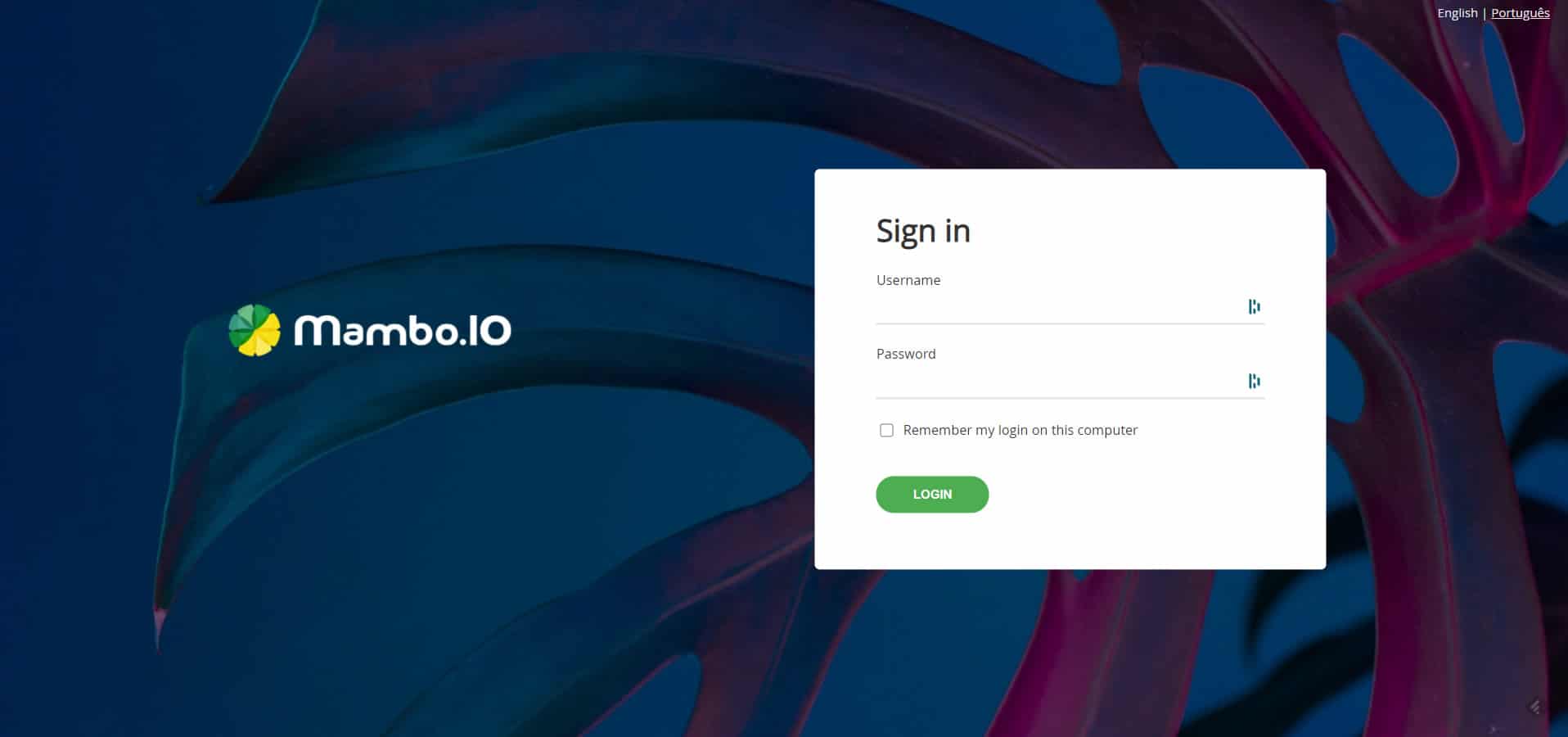
Authentication and Integration
Authenticating and integrating with Mambo Gamification Platform is an important part of the process, so we’re always looking to make improvements to make your lives easier. This release is no different.
Advanced API Key Management
Once again, we’ve listened to your feedback and modified our API Key Management to allow for far greater control and granularity.
Previously everyone would receive their default account API keys. These could be reset, but that was about all that could be done.
Now you can create your own API keys. The access granted to these API Keys can be finely controlled, just as with your administrators. You can configure global permissions for API Keys or Site specific permissions.
Every integration can now have it’s own API Keys, limiting any potential harm which could be caused by sharing the same key across the board.
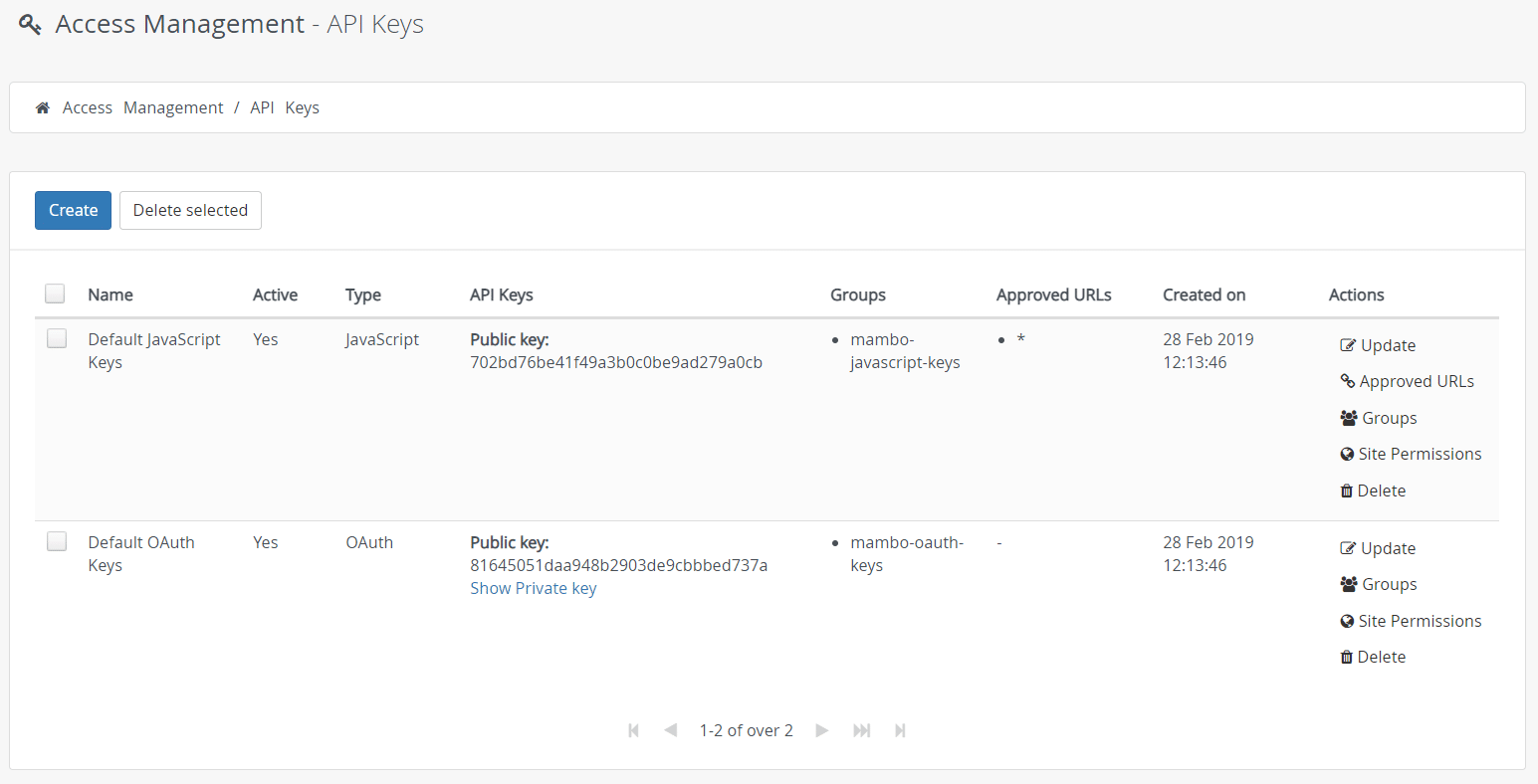
OAuth 2.0 API Authentication
Our APIs now support the client_credentials flow of the OAuth 2.0 protocol. This means you will be able to request a token and re-use it in subsequent requests (until it’s invalidated).
The new authentication protocol makes it even easier to integrate data sources with Mambo Platform. Middleware systems can connect directly to Mambo with no manual intervention. We’ve connect Microsoft Azure Apps and Tibco to Mambo with simple configuration.
Note that the APIs continue to support previous authentication as well, so that you can upgrade your SDKs gradually.
User OAuth 2.0 JWT Authentication
Seen as we’ve moved our APIs over to OAuth 2.0 we thought it would be a good time to also allow user authentication using OAuth 2.0 JWT.
Requests made on the behalh of users can carry additional authentication parameters which Mambo can then use to verify the user’s existence with a validating JWKS service.

Additional Noteworthy Enhancements
Other enhancements worth mentioning are the extended login time and the ability to remember your password on your computer so that you don’t need to login with the same frequency. We’ve also changed how we encrypt passwords in order to increase the level of security provided.
We made a few performance enhancements in the latest version of the mambo gamification platform.
You can now track 300% more activities per second with the synchronous API end-point. On the other hand, with the asynchronous API end-point you can now track 1000% more activities per second!
Suffice to say we spent a lot of time fine tuning thread pools and services, but it was totally worth it!
For mambo release v5.10 our list of improvements is long, too long to fit into one post. However, we’ve summarised the most interesting improvements below. Also, you can find the full list of changes with details in the Support Portal.
Summary of other interesting improvements:
- Ability to define start and end dates for leaderboards
- Ability to enable or disable leaderboards
- Limit the number of coupons in circulation
- Select which user properties to return on API calls
- Improved filters to retrieve list of awarded coupons
- Deprecated the system point and leaderboard
- Added “Create another” checkbox to UI modals
- Upgraded to MongoDB 4.x and Tomcat 8
Latest Posts
